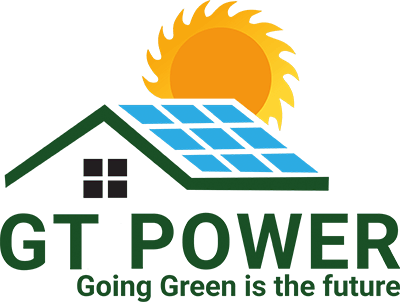
Here you’ll find a rundown of the many programs across the country designed to help residents go solar. The federal solar tax credit gets all the attention, but state and local governments also offer sales and property tax exemptions for which you may qualify. Some even offer rebates on the cost of solar panels. In addition, many utilities and local governments offer renewable energy credits and net metering credits for power through solar. There’s also a handy guide that breaks down the programs by state. Finally, we also take a look at the laws that protect your rights as a solar array owner, including solar rights laws and solar easement laws.
If you’re considering going solar, the United States federal government offers a generous tax credit for those wanting to go solar. It is a 30% tax credit of the entire cost of your solar system, including a solar panel battery, applied to your federal taxes*. Better known as the Investment Tax Credit, this incentive is available to both homeowners and business owners. The federal solar tax credit is one of the best available incentives for homeowners who choose to go solar.
Interested in how a solar installation will affect the assessed value of your home? Here’s some great news: property tax exemptions exist in many states where your new solar energy system will be exempt from property tax assessments. This is significant because this property tax exemption could help you recoup the cost of your system. So even though your solar power system adds value to your home or property, the system is exempt for half a decade when property taxes are assessed.
And speaking of tax breaks, some states also offer a sales tax exemption on the entire cost of your solar system. If you’re worried about the cost of solar panels keeping you from installing panels on your roof, sales tax exemptions help to cut down the costs. This means that your purchase of solar panels and equipment could be completely exempt from sales tax, depending on the state you live in.
In some states, the utility companies will help to make your switch to solar even easier — with the use of rebates applied to your investment of solar panels. Utility companies are realizing just how fantastic solar panels are, and how much they can benefit everyone. So to encourage customers to go solar, some utility companies are offering solar rebates to help with the cost of switching to solar.
Many states have an especially unique offering for residents with solar power: Solar Renewable Energy Certificates; also known as SRECs.(1) SREC programs are designed to reward people for switching to clean, renewable energy. Here’s an example of how it works: for every 1,000 kWh of solar energy your PV system produces, you receive 1 SREC to use toward shortening the time it takes to pay off the solar installation costs. The certificates vary from state to state, so be sure to ask your ADT Solar Energy Specialist about the specific details.
If you want to get the most value out of your solar panels, there’s almost no greater opportunity than net metering. With net metering, you can sell any excess electricity produced by your solar panels back to your utility company to cut down on energy costs. Your utility company will then credit your account for the electricity that they receive. This reduces your monthly bill even further, so more of your money stays in your hands, where it belongs. When you go solar with us, your ADT Solar Energy Specialist will handle any and all requirements for eligibility for you — no questions asked.
Many people are worried that their home owner associations (HOA) could prevent them from placing a solar panel system on their home. Solar rights laws protect the property rights of individual homeowners who want access to solar. The laws dissolve any local agreement, unreasonable restriction or deed of a property that make it difficult to use or produce solar energy. As a solar homeowner, it’s encouraging to know that the local and state governments support and defend your decision to make the investment to power your home with clean renewable energy. help with the cost of switching to solar.
Like any homeowner, you want to know that you’re getting the most out of any investment in your home. In some states, your investment in solar power for your home is backed by laws that ensure your solar panels capture energy without interference. Solar easement laws make it easy to remove any shade cover that would limit the production of your system. What’s more, solar easement laws also prevent HOAs from blocking or stopping your home solar panel installation.
Depending on your state, you may have additional solar incentives available to you. The best way to know every option available to you is to work with a dedicated solar expert who understands the in-and-outs of the industry. Schedule your free consultation and let our ADT Solar Energy Specialists guide you through the process.
You might be eligible for the 30% solar investment tax credit if you meet all of the following criteria:
